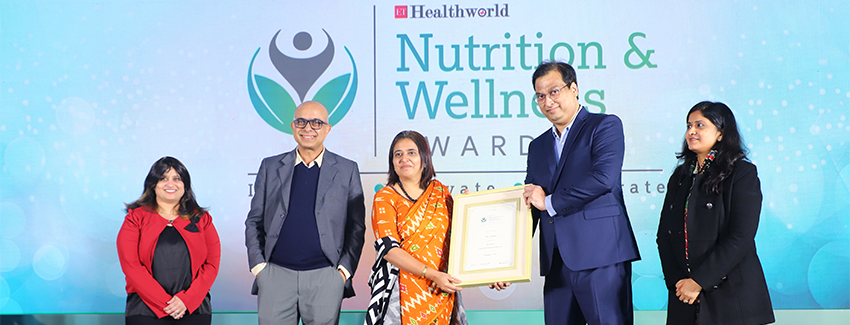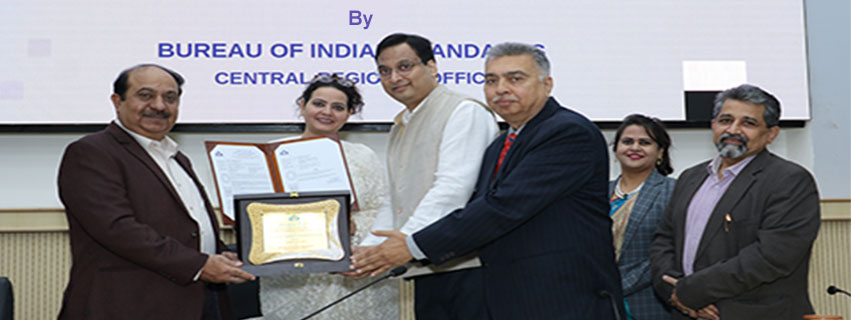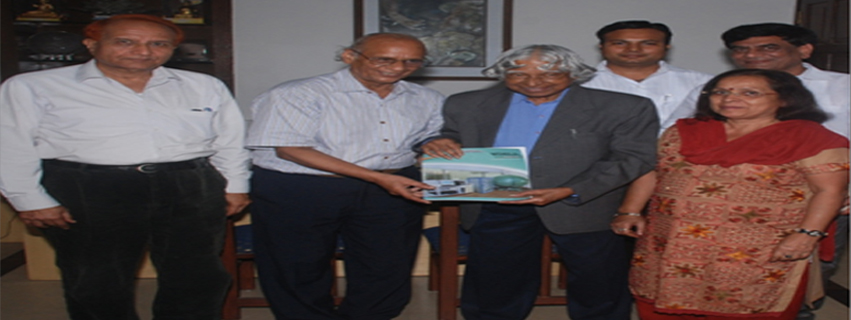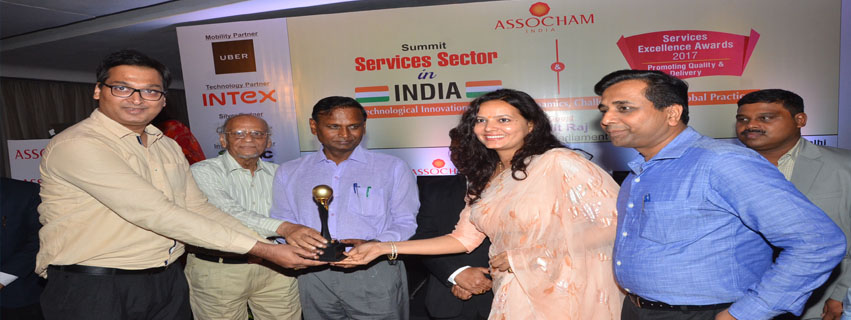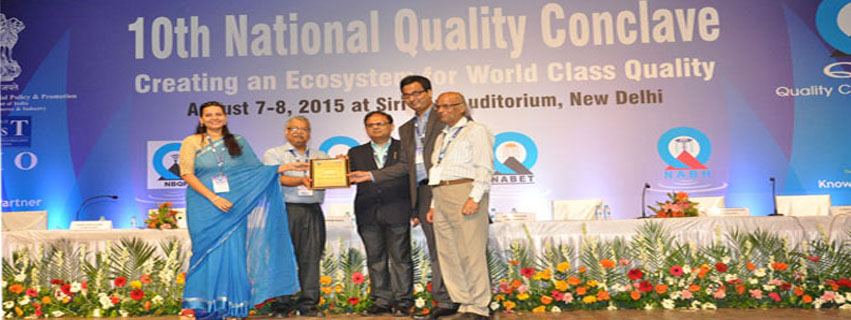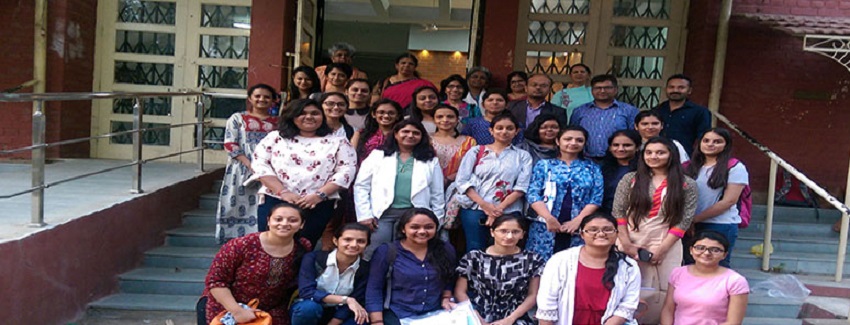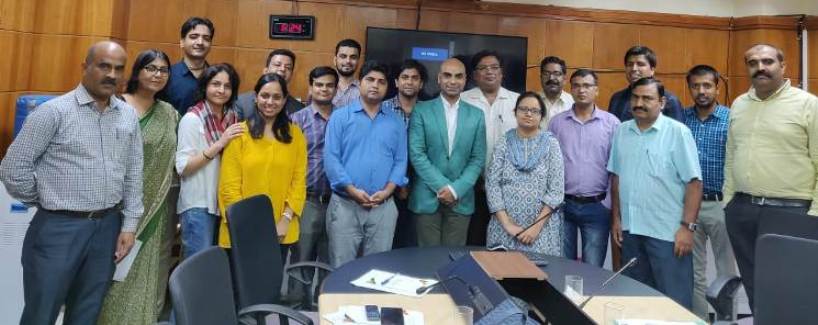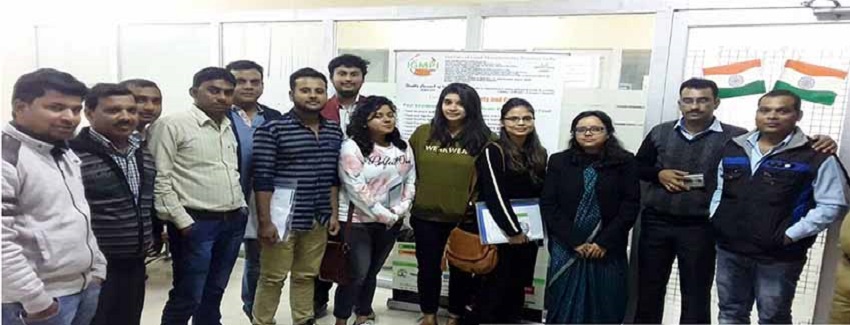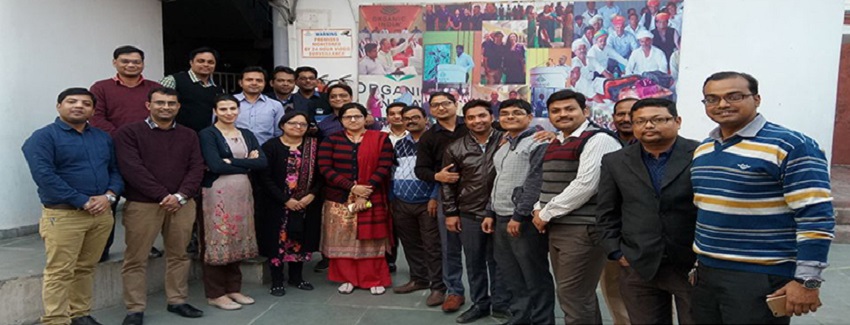(An Autonomous Body Recognized by Ministry of Commerce & Industry, Government of India)
Competency based placement focussed Education | Training | Research | Consultancy
Post Graduate Diploma/Executive Diploma in Agroinformatics (PGDAI/EDAI)
Agro-informatics is a vital field that integrates information technology with agricultural data management, analysis, and application to create precise and targeted agricultural interventions. The use of advanced technologies like satellite imagery, remote sensing, and geographic information systems (GIS) allows for the transformation of data into actionable insights. This combination of geospatial technologies and agricultural data opens up new ways to address hunger and poverty through accessible, data-driven solutions. By applying sophisticated data analysis and technology, agro-informatics helps identify challenges and opportunities, ensuring sustainable agricultural practices and resource management. Studying agro-informatics equips students with the skills to utilize digital tools for informed decision-making, enhance production efficiency, and improve early warning systems for better crisis management. Pursuing a course in agro-informatics prepares students for a future where technology and agriculture collaborate to sustain our growing population and protect our planet.
Programme Structure
International Affiliation with
Module 1: Introduction to Agricultural Science: Basics of farming, crop systems
Module 2: Plant Processes and Growth Models: Plant growth, development patterns
Module 3: Water and Nutrient Management in Agriculture: Irrigation, soil nutrients
Module 4: Post-Harvest Management and Market Analysis: Crop storage, market prices
Module 5: Precision Agriculture and Automated Systems: Smart farming, robotic systems
Module 6: Introduction to Information Science and Technology: Basics of IT, tech overview
Module 7: Data Interpretation, Graph Creation, and Statistical Analysis: Analyzing data, making charts
Module 8: Database Concepts and Management: Database basics, data storage.
Module 9: ICT Applications in Agriculture: Farm tech, communication tools.
Module 10: Geospatial Technology and Decision Support Systems: Mapping tools, farm decisions.
Module 11: Capstone Project
Eligibility
Graduates in any discipline are eligible for our Post Graduate Diploma, Executive Diploma and Professional Certification Programmes.
Programme Duration
The minimum duration to complete the PG diploma programme is 12 months and maximum is 24 months. The minimum duration to complete the executive diploma programme is 6 months and maximum is 12 months.
Programme Mode
Registrations are currently open for regular and Part-time (Online Live Classes) both modes.
Programme Deliverables
A comprehensive study material for all the modules in hard copies ensuring the needs of the audience. The accompanying training material is appropriately aligned with the current Industry’s expectations.
- Assignments for all the programme modules for continuous evaluation and guidance.
- Interactive or online live sessions on all key areas of the programme giving all flexibility to the participants.
- Online Live Classes/Part-time for all the modules will be conducted on the weekends. Moreover, a doubt clearing session will also be scheduled before the examination.
- All the efforts are made by IGMPI faculty members to make the entire programme modules easily understandable.
- Assessment and evaluation for all the programme modules in order to enhance the levels of competencies and skills of the participants leading towards the objective of application in the job.
- At the end of each programme modules, the trainers shall obtain feedback from the participants using specially designed questionnaires.
- All learning and training delivery initiatives shall be conducted in English.
Placement Assistance & Corporate Relations
Recently, the Institute has witnessed growing involvement from professionals working with global industry leaders such as Monsanto, John Deere, Syngenta, Bayer CropScience, Corteva Agriscience, IBM Food Trust, Trimble Agriculture, Climate Corporation, and prominent organizations like ICAR (Indian Council of Agricultural Research), IRRI (International Rice Research Institute), IFPRI (International Food Policy Research Institute), CIMMYT (International Maize and Wheat Improvement Center), ICRISAT (International Crops Research Institute for the Semi-Arid Tropics), CGIAR (Consultative Group on International Agricultural Research), FAO (Food and Agriculture Organization), World Agroforestry Centre, CABI (Centre for Agriculture and Bioscience International), and GFAR (Global Forum on Agricultural Research).
Future career prospects
Studying agro-informatics offers promising career prospects at the intersection of agriculture and technology. Graduates can pursue roles such as GIS specialists, data analysts, and remote sensing technicians, using advanced technologies to optimize farming practices and enhance crop yield. They may also work as sustainability consultants, precision agriculture specialists, or environmental scientists, contributing to sustainable agricultural practices and ecosystem conservation. Opportunities include research positions in agro-informatics, ICT for development roles, and entrepreneurship in agricultural innovation. These careers are pivotal in addressing global challenges like food security and resource management, making agro-informatics an impactful field for future professionals.
Programme Fee Details
Programme fee details will appear here.
Last date for submitting completed Application Form: 6th Feb 2026.
For further enquiries, call or write to us on:
18001031071
(Toll Free -9:00 am to 5:30 pm IST-except on Central Government holidays)/
info@igmpi.ac.in
GLOBALG.M.P.™ NEWSLETTER
Other Programmes
- Agro Processing (PGAFP/EAFP)
- Agrochemical Regulatory Affairs (PGARA/EDARA)
- Agrochemical Technology (PGDAT/EDAT)
- Bakery and Confectionery (PGDBC/EDBC)
- Bakery Science and Technology (PBST/EBST)
- Beverage Technology (PBT/EBT)
- Dairy Science and Technology (PGDST/EDST)
- Fats and Oil Processing (PFOP/EFOP)
- Food Analysis & Quality Assurance (PGFAQA/EFAQA)
- Food Analytical Instrumentation (PFAI/EFAI)
- Food Biochemistry (PGFB/DFB)
- Food Engineering (PGDFE/EDFE)
- Food Intellectual Property Rights (PGIPR/EIPR)
- Food Microbiology (PGFM/EFM)
- Food Packaging (PGFP/EFP/FPD)
- Food Processing (DFP)
- Food Processing and Preservation (PGFPP/EFPP/DFPP)
- Food Product Development (PGDFPD/EDFPD)
- Food Quality Assurance & Quality Control (PGFAQA/EFQA)
- Food Regulatory Affairs (PGFRA/EFRA)
- Food Safety (PGFS/EFS)
- Food Safety in Hospitality Industry (PFSHI/EFSIH)
- Food Science and Technology (PFGFST/EFST)
- Food Supply Chain Management (PFSCM/EFSCM)
- Frozen Products Processing Technology (PGDFPPT/EDFPPT)
- Fruits and Vegetable Technology (PFVT/EFVT)
- Good Laboratory Practice (PGFLP/EFLP)
- Good Manufacturing Practices (PGFGMP/EFGMP)
- Meat and Seafood Technology (PMST/EMST)
- Nutraceuticals (PGDNC/EDNC)
- Organic Farming and Food Production System (PGOF/EDOF)
- Spices & Plantation Product Technology (PGSPPT/ESPPT)
- Tea Technology (PGTT/ETT)

